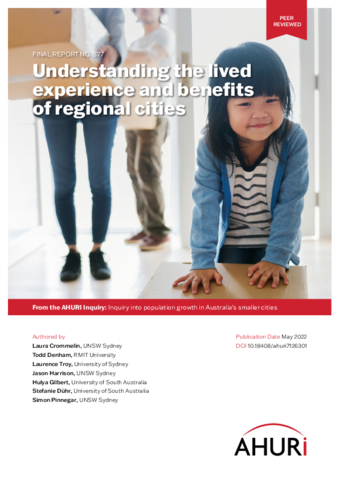From the AHURI Inquiry: Growing Australia’s smaller cities to better manage population growth
This research investigates the lived experience of regional city residents (in five case studies) to understand how the benefits and disadvantages of regional city life are perceived and explore attitudes towards population growth.
Over the 21st century Australia’s population has grown at a high rate and has been concentrated in the major cities, while many of the more remote areas of inland Australia have been stagnant or experienced population decline. As a result, there are two policy concerns regarding the distribution of population and growth in Australia: the need to ameliorate metropolitan population pressures by redirecting population growth out of the cities, and the uncertain futures of many parts of regional Australia that are not currently growing.
The research finds that for pro-growth policies to be well-received in regional areas, it is essential that they are perceived as beneficial by local residents. The research also indicates that a primary focus for growth policy should be on improving regional labour markets, which would then attract population. This includes the need to consider how long-term career aspirations can be fulfilled in non-metropolitan Australia. More broadly, the findings indicate that policy making needs to be approached from a regional perspective, with the goal of making regional Australia an attractive place to live and work, rather than approached as a solution to metropolitan population pressures.


